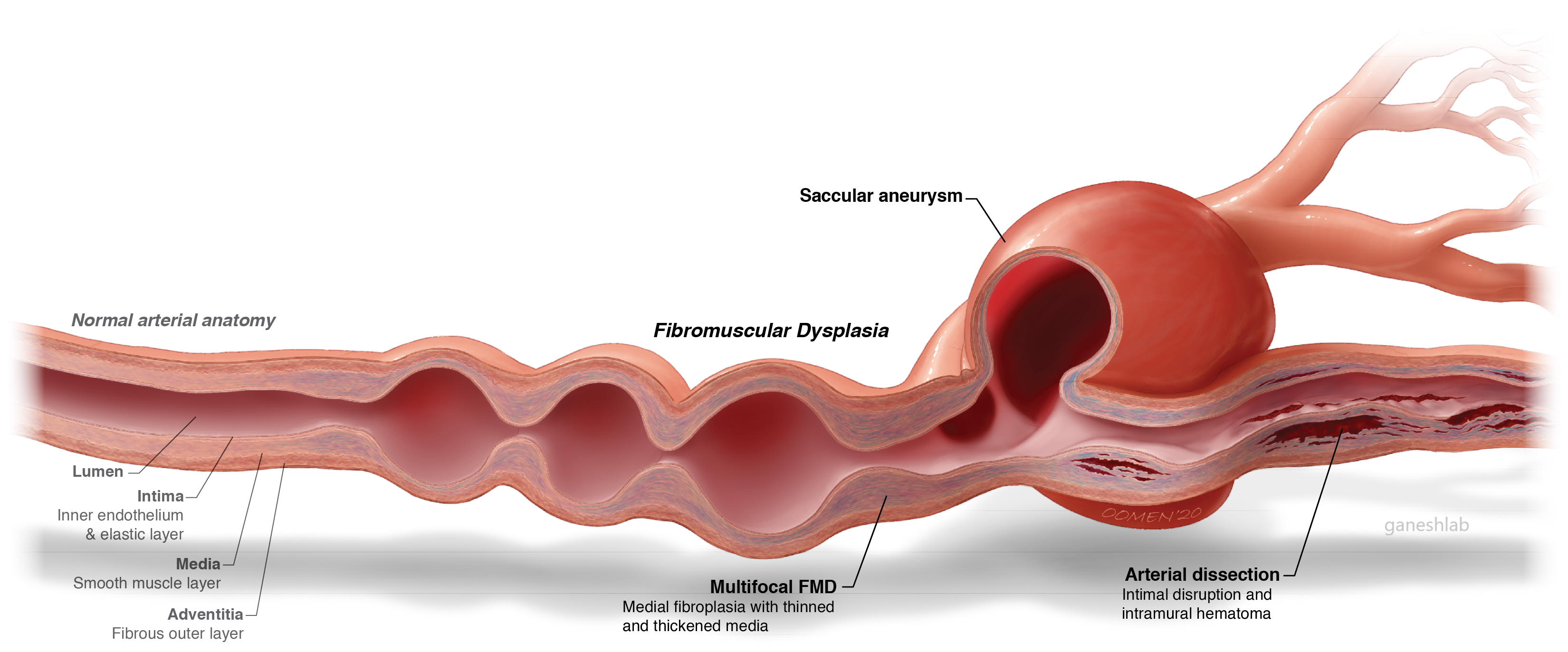
Arterial Dysplasia Genetic Study
Clinic Information

Cardiovascular Medicine appointments with Dr. Ganesh
Vascular Surgery appointments with Dr. Eliason
U-M Frankel Cardiovascular Center

C.S. Mott Renovascular Hypertension Center (Pediatric)
Specific conditions/diagnoses treated include:
• Renal artery stenosis
• Midaortic syndrome (abdominal aortic coarctation)
• Arterial aneurysms
• Lower extremity arterial disease
• Intestinal artery (mesenteric) arterial disease
FMD (Fibromuscular Dysplasia)
Fibromuscular Dysplasia Society of America
SCAD (Spontaneous Coronary Artery Dissection)
Vancouver SCAD Conference and Key Patient Resources
SCAD Alliance
Beat SCAD
SCAD Warrior App (created to help patients recover from SCAD)
Cardiology patient page. Spontaneous coronary artery dissection
Pediatric Arterial Dysplasia
C.S. Mott Renovascular Hypertension Center (Pediatric)
pRVH PCOR Collaborative (providing support and resources for patients with pediatric renovascular hypertension and their families)
